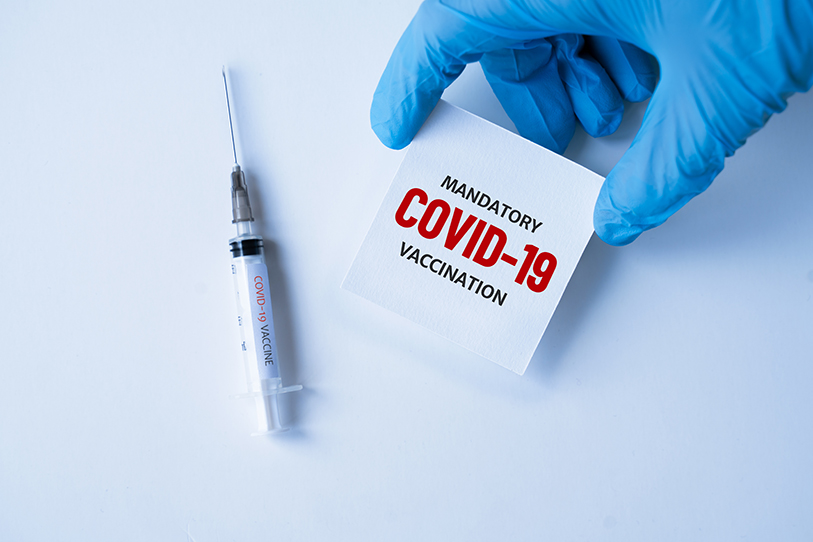COVID-19 vaccines continue dominating the news as the U.S. Food and Drug Administration (FDA) has now provided full approval of the Pfizer-BioNTech COVID-19 vaccine for use in individuals 16 years of age and older. Previously, any vaccine in use in the U.S. was only provided an emergency use authorization; the FDA’s full approval of at least one COVID-19 vaccine will likely lead to more mandatory vaccination policies. In California, the state government has already announced vaccine mandates for the health care industry and a vaccinate or test mandate for K-12 schools while some private businesses have already begun to consider or implement mandatory vaccination policies. Although both the U.S. Equal Employment Opportunity Commission (EEOC) and the California Department of Fair Employment and Housing (DFEH) have stated that private employers may implement a mandatory vaccine policy, employers must also be aware of accommodation requests that may arise related to an employee’s disability or sincerely held religious beliefs.
For many employers, disability accommodation is something we are familiar with — an employee requests an accommodation, the employer requests a medical certification and then the employee and employer come together to try to find a reasonable accommodation in what is known as the interactive process. Mandatory vaccination policies don’t change this process.
Conversely, many employers may have little to no experience with religious accommodations and that experience is usually limited to religious holidays or dress. Unlike disability accommodations, employers generally may not ask for documentation to substantiate the need for the religious accommodation. Because the law takes an incredibly broad view of religious accommodations, employers are usually required to take the employee’s beliefs at face value.
Although the EEOC suggests that employers with an objective basis for questioning the accommodation may seek additional supporting information from the employee about the religious nature of the belief, or whether it is sincerely held, employers should not engage in that inquiry on their own. Employers with strong questions about that belief should consult with legal counsel before requesting further information from an employee based upon a religious accommodation request.
Once an employer knows the employee has a protected disability or religious belief, both the EEOC and the DFEH instruct employers to engage in a good faith interactive process to determine if there’s a reasonable accommodation for the employee’s inability to receive the vaccine; this must be done before the employer makes any decisions regarding that individual’s employment.
While the EEOC identifies several potential accommodations that may be reasonable — wearing masks, adjusting shift schedules, teleworking and reassignment — whether an accommodation is reasonable and doesn’t constitute undue hardship, such as compromising the health and safety of the workforce, requires a case-by-case analysis. Complicating matters is that the DFEH takes the position that, unless requested by the employee, segregating or isolating the employee from other employees or the public as part of a religious accommodation is unacceptable. Because each case will be unique, employers who do end up navigating this issue are strongly encouraged to seek legal counsel on this issue as well.
Matthew J. Roberts, Employment Law Counsel/Subject Matter Expert
CalChamber members can read more about Religious Accommodations in the HR Library. Not a member? See what CalChamber can do for you.



